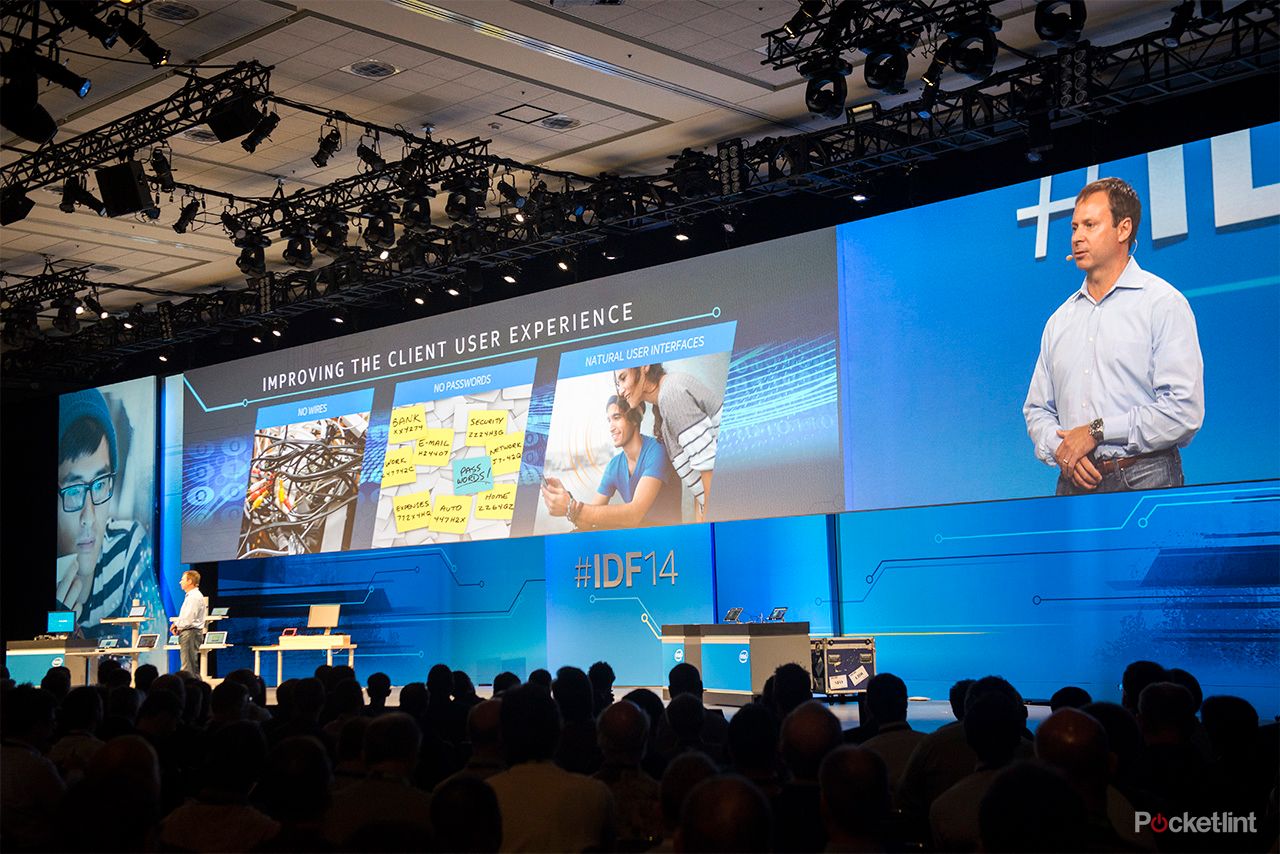Passwords are a brilliant and useful aspect of security, but they're also a pain in the ass. Forgetting one, having another phished or hacked, needing to use a different new one when trying to reset an account. Multiple sighs ensue when that replacement email doesn't arrive - or instead gets assigned to spam bin.
So what if there was no need for a password at all? Instead, why not be your password? That's Intel's vision for the future; that biometrics will stand-in and you will no longer need to tap in a 12 character (including one non-letter, at least two caps and a smiley face) password that you only get correct on the third attempt.
What exactly does it mean by "biometrics"? Speaking on stage at the Intel Developer Forum in San Francisco, Kirk Skaugen, senior vice president and general manager PC client group, made bold statements. In addition to envisioning a wireless computing world, he also stated that "we have to eliminate passwords."
"Intel's vision is you are your password - literally, your face and your biometrics become the way you access your computer, your client device and your websites.
"The average user has eight or more passwords and 26 accounts, so we're going to eliminate these passwords beginning in 2015."
At a later presentation, Hermann Eul, vice president and general manager mobile and communications group, took to the stage and was part of a demonstration showing off Delta ID ActiveIRIS - an iris recognition technology.
Using a front-facing camera on a concept phone running on an Intel Atom Z3500 processor the company showed off that consumer-grade iris scanning is not just a concept, but an imminent reality.
Many of us are already establishing biometric relationships with existing devices, whether we think about it in that way or not. From Apple to Samsung and HTC to Huawei, an increasing number of smartphone manufacturers are utilising fingerprint scanners as a means to login to their devices.
Intel's concept embeds itself deeper than a single level access for one device, which might sound great in principle, but leaves questions in potential practice. Is the system open to abuse or fraud in a different way to a written password? Do we want to be so closely linked to all our accounts in such a personal way? What are the chances and implications of recognition failure?
So there we have it futurism fans. In the not-so-distant future your password will no longer be "password" or "12345" but that one thing that's constant and that you won't forget: you.

